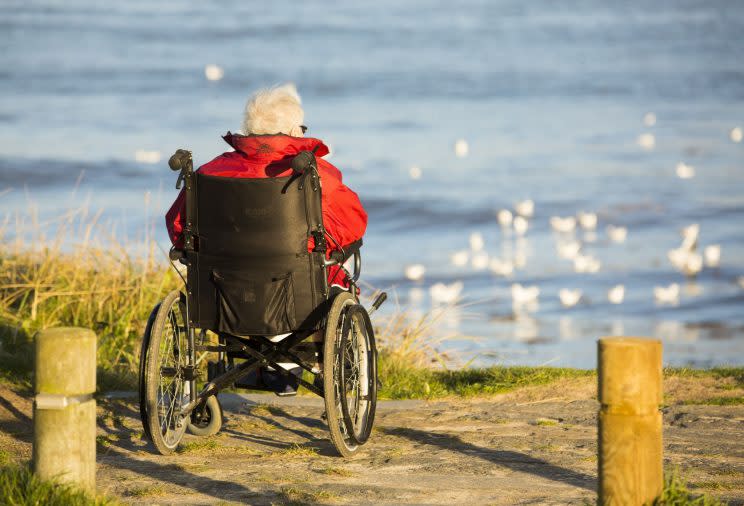Awkward moment Theresa May dodges question over payments to pensioners
Theresa May has refused to guarantee the triple lock on pensions will continue in an awkward exchange during Prime Minister’s Questions.
The PM said payments would rise under a new Conservative government but refused to say if the increase would be at least 2.5%, as pledged by her predecessor.
May said state pensions would rise if she won the June 8 election – but not by how much.
But, noticeably she dodged avoiding a pledge made by David Cameron that ensures a minimum increase for OAPS of 2.5% annually.
Angus Robertson asks Theresa May to give a “clear and unambiguous commitment” to the pension “triple lock” #PMQs pic.twitter.com/JjZq8r2hWW
— The Telegraph (@Telegraph) 26 April 2017
“I am clear that under a Conservative government pensioner incomes would continue to increase,” she told parliament.
MORE: Voter stunned by how nervous Theresa May was
MORE: Can you believe a word he says? Donald Trump’s dubious ‘facts’
The Prime Minister’s response prompted cries of “answer” from the opposition benches, with Mr Robertson saying: “I asked the Prime Minister a pretty simple question, it was a yes or a no, and the Prime Minister failed to answer.
“So pensioners right across this land are right to conclude that this Tory Prime Minister plans to ditch the triple lock on the state pension.
“Too many women already face pensions inequality, and the Tories now won’t even guarantee the pensions triple lock, and the only reason that they will not guarantee it is because they want to cut pensions.
“Is not the message to pensioners you cannot trust this Prime Minister, you cannot trust the Tories on your pension.”
Since June 2010, Britain’s state pension has risen by whichever is the highest of either inflation, average earnings or 2.5 percent.
This is known as the so-called “triple lock’.

The prime minister had been asked if she would re-commit to the triple lock.
The lack of a cast-iron guarantee by the PM may end up being important at the ballot box, as historically older Britons vote in larger numbers at elections.
May’s finance minister Philip Hammond last week said the issue of pensioner poverty has been fixed, heightening speculation that the triple-lock policy could be ditched in the upcoming manifesto.

 Yahoo News
Yahoo News 


